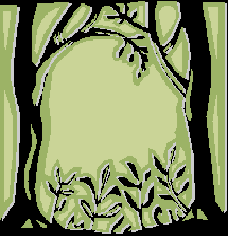Sangre de Grado (Croton lechleri)
Croton lechleri is a large tree that grows in the upper Amazon region
of Colombia, Ecuador, and Peru where the majority of the field research has
taken place. A dark red resin, from which the name sangre de grado derives,
flows easily from cuts in the bark and is used fresh or processed into a
powdered dry extract of the resin for medicinal purposes. In traditional
Amazonian medicine sangre de grado is used as an oral gargle for sore throat,
as a vaginal antiseptic after childbirth, topically as a hemostatic, and
taken internally for wound healing. It is also used to improve gastrointestinal
function, to protect the mucous membrane lining of the lower gastrointestinal
tract, and to treat diarrhea. There is only one comprehensive review of
the research and literature and two randomized controlled trials in human
subjects have been performed on extracts of sangre de grado.
The known chemical composition of sangre de grado includes a considerable
number of compounds including several simple phenols and diterpenes, proanthocyanidins,
phytosterols, a ihydrobenzofuran lignan, and the alkaloid taspine. The
pharmacological actions of sangre de grado include anti-oxidant potential,
anti-inflammatory effects, anti-bacterial activity, antitumor potential,
anti-diarrheal effects, wound healing, antifungal effects, and antiviral
properties. In at least one study, its phenolic and diterpene compounds demonstrated
potent antibacterial activity against Bacillus subtilis and Escherichia
coli. In a study designed to evaluate its gastrointestinal effects, Miller
et al concluded that, "sangre de grado is a potent, cost-effective treatment
for gastrointestinal ulcers and distress via antimicrobial, anti-inflammatory,
and sensory afferent-dependent actions." In the Chen study, antitumor properties
were investigated in a Brazilian species (Croton cajucara) as well as an
Ecuadorian species. The alkaloid taspine hydrochloride has been found to
be the main cicatrizing or wound healing potential and a potential anticancer
agent.
The anti-diarrheal action of sangre de grado has attracted the recent
attention of researchers and several papers have been published on the mechanisms
and effectiveness of this herb or diarrhea diseases. SP-303, a novel proanthocyanidin
substance derived from the purified latex of Croton lechleri, has been
shown to be effective in the treatment of persistent diarrhea associated
with AIDS. One paper describes the results of a multi-center, phase II,
randomized, double-blind, placebo-controlled study on 51 subjects using
this substance over a period of four days. Patients in the SP-303 group
experienced a statistically significant reduction in stool weight. An in
vivo mouse study (treating cholera-toxin related secretory diarrhea), examining
the mechanisms of the action of SP-303, showed that it has an inhibitory
effect on cAMP-mediated chloride and fluid secretion.
Extracts of sangre de grado have been shown to have antiviral activity
against influenza, parainfluenza, herpes simplex viruses I and II, and
hepatitis A and B. In a multi-center, double-blind, placebo-controlled
study, a topical preparation of SP-303 was used to treat recurrent genital
herpes lesions in AIDS patients. Viral culture revealed 50 percent of the
treated group and 19 percent of the placebo-treated patients became culture-negative
at the end of the 21-day trial. Although immunomodulating properties of sangre
de grado have not been specifically elucidated, it is feasible that its anti-inflammatory,
antimicrobial, and antioxidant activity may provide non-specific immunomodulating
effects as well.
There is a wide range of potential applications for sangre de grado,
including as a broad-spectrum anti-diarrhea agent from causes such as side
effects of drugs, chemotherapy or radiation treatment, microbial infections
of the intestine, traveler's diarrhea, and viral-induced diarrhea as in
AIDS. It may also have other uses in gastrointestinal disorders such as
irritable bowel syndrome and ulcerative diseases. Its cytotoxic effects make
it a possible antitumor agent and its cicatrizing properties provide wound-healing
potential. In addition, the antimicrobial and anti-inflammatory effects
of sangre de grado make it a useful compound in the clinical treatment of
chronic viral diseases and as a natural antibacterial agent.



